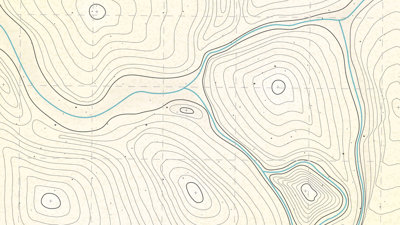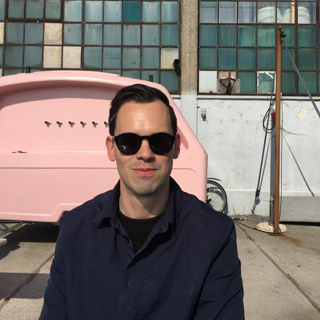How did you get to where you are now?
After leaving school I attended Royal Holloway, University of London, to study for an undergraduate degree in geography. After this I decided to stay on for another year to complete a Masters degree in cultural geography, which encouraged you to apply your own interests to the course. For me, this was the myriad of roles that the camera has played in the world we know today. For example the role the lens played in exploration and our understanding of the 'New World'; how we use cameras to record, document and archive knowledge; and how Hollywood shaped and continues to form geopolitical narratives through geography's relationship with film.
For my dissertation I worked in the picture library at the Royal Household. For three weeks I worked alongside photographers, documenting all the objects within the Royal collection; and the sales staff, selling the final images to consumers and businesses.
On completing my Masters I wanted to explore other opportunities within picture libraries and I managed to secure an internship at the Bridgeman Art Library, in West London and it was here that I discovered picture researching. As a Picture Researcher, you have extensive knowledge of a picture library’s content and you use this knowledge to help customers find content they are looking for from within the library.
Whilst at the Bridgeman Art Library I attended an evening course in Picture Researching. During the course I was introduced to an employee of Getty Images, who came and gave a talk. I handed them my CV which led to an interview and three months later I started as a Picture Researcher at Getty Images.
What do you do as part of your role?
My job role has morphed from Picture Researcher (Research Editor) into the dual role of Research and Clearance Project Manager. On the one side I’m a Research Editor which means I interpret and fulfil client’s requests for content across Getty Images’ products and services. We support a wide range of customers – from newspapers, TV and film to creative agencies and large corporate firms - and serve as content and search experts across our Creative and Editorial offerings.
On the other side I’m a Rights and Clearance Expert so we help brands and agencies secure the rights to use famous people, properties, works of art, and trademarks in a wide variety of commercial projects.
What skills and characteristics do you need for this role, apart from geographical knowledge?
Creativity, problem solving, communication, research, negotiation, presentation and organisational skills, initiative and the ability to build networks.
How does geography feature in your work/what difference does it make?
Geography features heavily across both roles. As a Research Editor I work with customers across Europe so need to be mindful of sending appropriate content for the territory we are working with. Different territories around Europe have different styling and model requirements, so having local knowledge of what does and doesn’t sell is important to this role. With this we also need to understand the cultural differences between territories and how consumers interact with imagery and must also know a lot about global culture, sport, entertainment and historical events.
As a Rights and Clearance Expert, I need to keep afoot of any intellectually property or right of publicity law changes that happen around the globe.
What advice would you give to someone wanting to go in to this career?
From a Research Editor perspective, I would advise to have a keen interest in reading imagery. Being able to look at images both aesthetically, being able to identify what a great image is, and socially, what images are suitable for which consumers, are key traits. Also being able to understand the basics of copyright law will go a long way in a career in picture libraries.
If a career in rights and clearance is of interest my advice would be to investigate the various intellectual property rights and right of publicity laws around the world and how these apply to customers looking to use famous people, properties, trademarks and logos in advertising.
Why did you choose geography? Why should others choose geography?
I chose geography because of its ability to transcend other subjects. It can be applied across various topics giving you the flexibility to pursue your own interests at the same time. I wouldn’t be working at Getty Images if it wasn’t for geography.
* This interview was undertaken in 2019 and was correct at the time of publication. Please note that the featured individual may no longer be in role, but the profile has been kept for career pathway and informational purposes.

